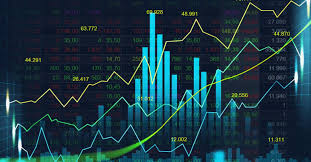Proprietary trading firms are known for their ability to recruit top-tier talent to trade using the firm’s capital. But have you ever wondered how these firms pinpoint the right individuals? Their evaluation criteria and selection processes are sophisticated, often combining metrics-based analysis with behavioral and cognitive assessments. Here’s a look at how proprietary trading firms evaluate and select traders.
1. Analyzing a Trader’s Track Performance
One of the first things proprietary trading firms examine is a trader’s historical performance. Key metrics such as profit and loss (P&L) statements, risk-adjusted returns, win rates, and average per-trade return are foundational. Firms assess whether a trader can consistently generate returns while using risk management strategies to limit losses. Consistency is critical—high returns mean little if they come with extreme risk.
Statistically, traders with a higher Sharpe ratio (indicative of risk-adjusted returns) are more likely to catch the firm’s attention. For example, a trader consistently producing a Sharpe ratio above 2 demonstrates both skill and discipline.
2. Behavioral and Psychological Evaluations
Numbers aside, how a trader thinks and behaves under pressure is crucial. Proprietary trading firms often conduct psychological evaluations to determine traits such as resilience, patience, and decision-making ability under stress.
These assessments help identify whether a trader has the mental fortitude to handle volatile markets. For instance, a trader adept at maintaining composure in red markets (even when losses are mounting) offers long-term reliability to the firm.
3. Simulated Trading Trials
Many firms use trading simulations to evaluate a trader’s ability in real-time scenarios. Simulations replicate live trading environments, testing both a trader’s technical strategies and their adaptability to market changes. Metrics like response time, accuracy of market forecasting, and adherence to risk limits are carefully reviewed during this phase.
Interestingly, firms rely heavily on statistical outcomes during these simulations, comparing predictive success rates or tracking how much profit a trader generates relative to drawdowns.
4. Focus on Quantitative and Technical Skills
Proprietary trading increasingly operates in a data-driven world. Firms seek traders fluent in quantitative analysis, coding, and model-building. Being able to backtest strategies or use programming languages like Python and R often provides a significant edge.
Final Thoughts
Proprietary trading firms blend hard data with soft skills to select the best traders. A strong track record, mental resilience, and technical knowledge all play a pivotal role. For aspiring traders, focusing on consistency, adaptability, and mastering quantitative skills can increase your chances of joining a top prop firm.
